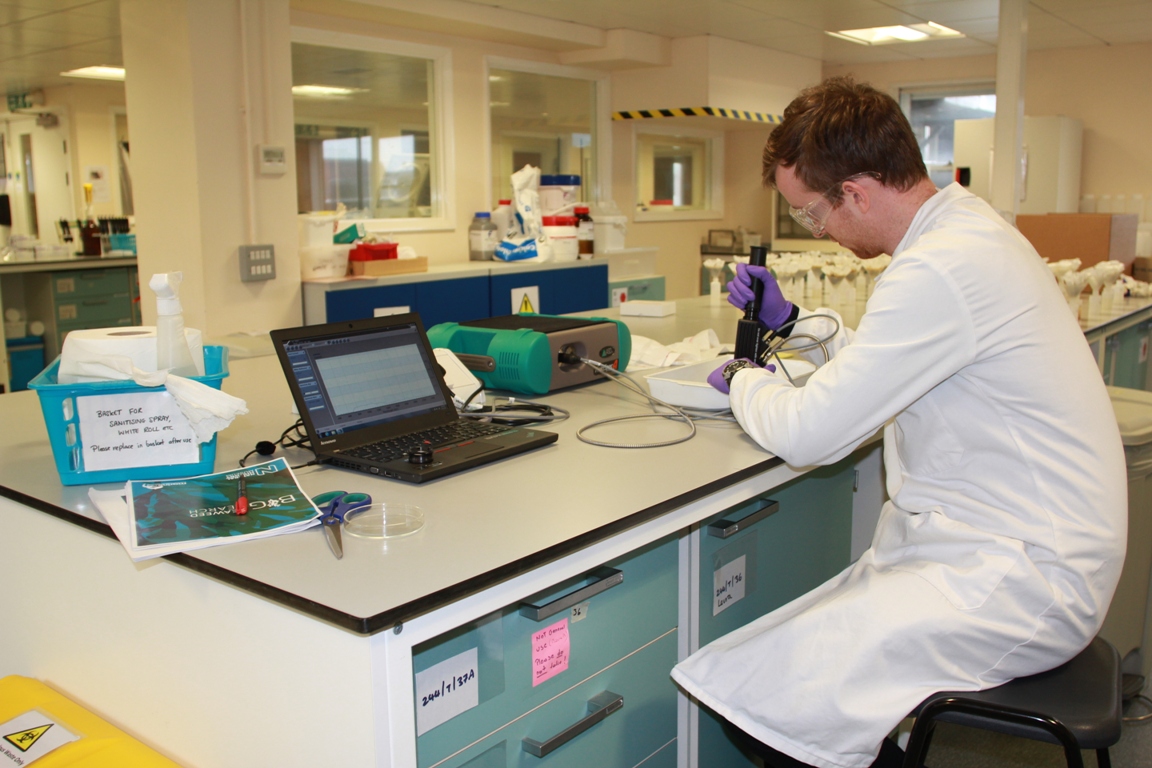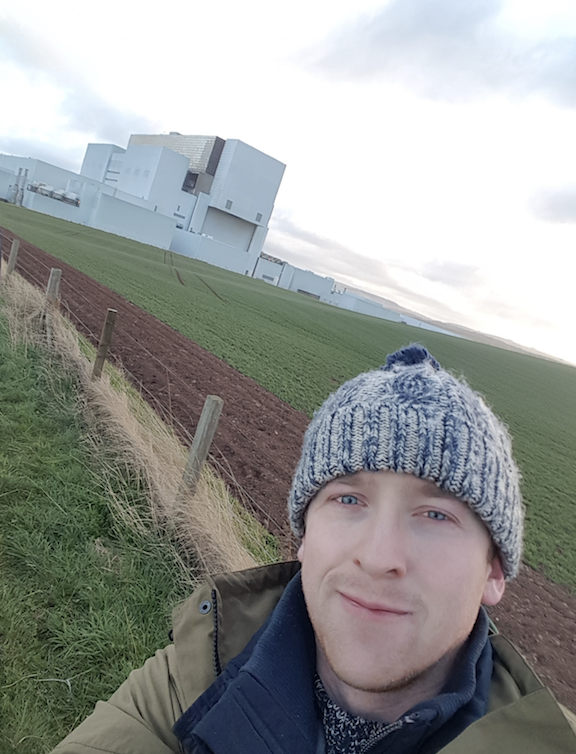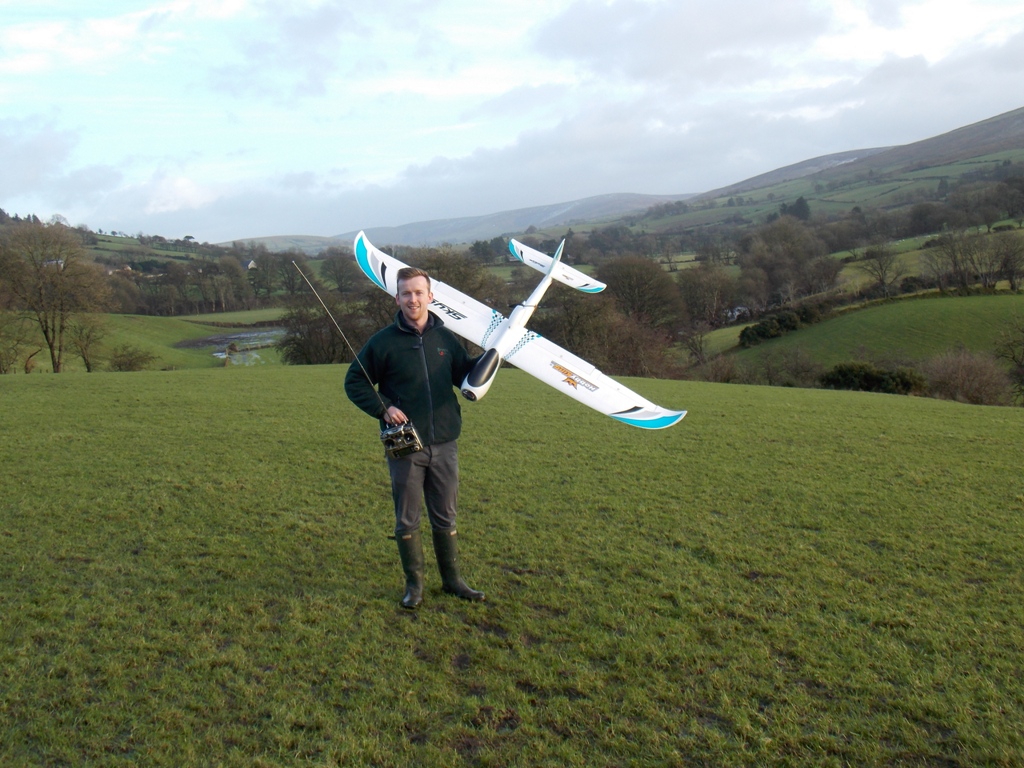My Cranfield PhD: Using UAVs to detect marine biohazards near nuclear power stations
18/03/2019

Before starting my PhD at Cranfield (UAVs used for the early detection of marine ingress events near coastal nuclear power stations) I read Zoology and Conservation biology at the University of Derby. I had planned to have a few months break between my masters and applying for a PhD. Just two weeks after finishing my masters, I was getting my car serviced and browsing www.findaphd.com. One thing led to another and within 10 days I had submitted my application and research proposal, attended my interview and received an offer! The unique blend between biology, environmental engineering, and technology (who doesn’t love drones!) really attracted me to this PhD. The photo above shows my early interest in UAVs!

Filming for EDF Energy to help promote my work across their nuclear power stations
Nuclear power stations face a continuing battle against marine ingress – a term used for undesirable biomass entering their water intakes. UK coastal nuclear power stations, and others worldwide, are becoming plagued by dense accumulations of jellyfish which clog water intakes and therefore restrict the flow of cooling water. Restricting the flow of water through the intakes requires slowing down of the electricity generation process, or even a complete emergency reactor shutdown. This leads to significant financial losses for the companies running nuclear power stations, as well as interrupting electricity supply to the general public. In the worst cases, more permanent damage can be caused, leading to prolonged reactor shutdowns, costly repairs and further losses in electricity generation (up to 2 million pounds a day!).

Collecting seaweed spectral data for my first paper
Although the fundamental factors leading to jellyfish blooms and severe seaweed ingress events are known, there is currently no system in place to identify the risk of a severe ingress event occurring at any place or time. Such a system would allow pre-emptive action to stop the biological material being drawn into the cooling water intakes or, at least, reduce the severity of the ingress event; ultimately resulting in smaller generation losses.
Unmanned Aerial Vehicles (UAVs) are emerging as a key engineering solution for environmental monitoring tasks. On-demand deployment of UAVs enables continuity of current monitoring programmes. In addition, high resolution aerial imagery collected from UAVs could provide better estimates of jellyfish and seaweed extent, density and arrival time with the appropriate algorithm development. These two benefits combined will lengthen the detection-response elapsed gap and act as an effective warning system, allowing the power station to take pre-emptive action.

Selfie in front of Torness nuclear power station, Scotland
Through the development of a drone-based early warning detection system, I hope to be able to reduce the detrimental effects of marine ingress. I am currently in the second of a four year PhD and hope to complete it through the ‘publication pathway’ – in other words, producing a thesis that consists of a series of papers that have been published in peer reviewed journals. Being midway through the peer review process for my first paper, and wiser to the tribulations of this process, I feel that maybe I should have gone for the traditional monograph style, or perhaps run away to a far away land. I am currently undecided – perhaps there will be less jellyfish and seaweeds there!

Conducting flood risk assessment in Northern Ireland – 2017
Categories & Tags:
Leave a comment on this post:
You might also like…
Company codes – CUSIP, SEDOL, ISIN…. What do they mean and how can you use them in our Library resources?
As you use our many finance resources, you will probably notice unique company identifiers which may be codes or symbols. It is worth spending some time getting to know what these are and which resources ...
Supporting careers in defence through specialist education
As a materials engineer by background, I have always been drawn to fields where technical expertise directly shapes real‑world outcomes. Few sectors exemplify this better than defence. Engineering careers in defence sit at the ...
What being a woman in STEM means to me
STEM is both a way of thinking and a practical toolkit. It sharpens reasoning and equips us to turn ideas into solutions with measurable impact. For me, STEM has never been only about acquiring ...
A woman’s experience in environmental science within defence
When I stepped into the gates of the Defence Academy it was the 30th September 2019. I did not know at the time that this would be the beginning of a long journey as ...
Working on your group project? We can help!
When undertaking a group project, typically you'll need to investigate a topic, decide on a methodology for your investigation, gather and collate information and data, share your findings with each other, and then formally report ...
From passion to purpose: My journey at the Pinnacle of Aviation
By: Sultana Yassin Abdi MSc Air Transport Management, Current Student Born and raised in the vibrant landscape of the UAE, with roots stretching back to Somalia, my life has always been ...






